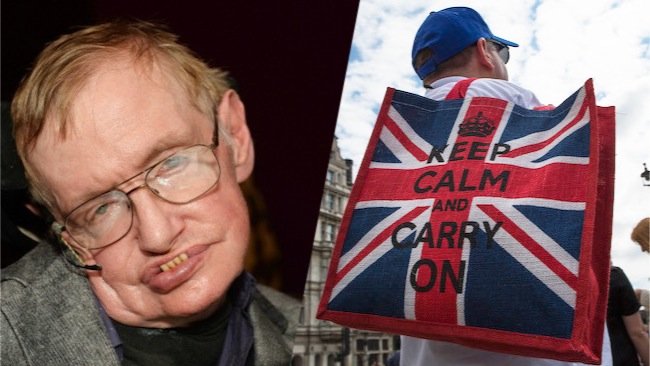
Britain’s exit from the European Union has created more than just a simple hashtag. The fallout from Brexit highlighted voters’ unawareness of foreign issues and showcased the lengths that politicians will go to in order to get their messages across. It’s been a messy few months for the country, and some analysts feel there is trouble still on the horizon.
One of the those critics is famed physicist Stephen Hawking, who penned an essay for The Guardian to potential consequences of the EU Referendum. Hawking discussed his belief that the referendum was influenced by wealth. He went on to warn how the exit could have drastic effects on researchers getting funds, which is the lifeblood of his own life’s work:
“Money is also important because it is liberating for individuals. I have spoken in the past about my concern that government spending cuts in the UK will diminish support for disabled students, support that helped me during my career. In my case, of course, money has helped not only make my career possible but has also literally kept me alive.”
He believes this philosophy of wanting to be wealthy and acquire possessions has taken over the country, and he questioned whether makes life any better asking, “is knowledge or experience more important than money? Can possessions stand in the way of fulfillment?” He also reiterated this is not a time to bicker or it could have drastic effects.
“Such pressing issues will require us to collaborate, all of us, with a shared vision and cooperative endeavor to ensure that humanity can survive. We will need to adapt, rethink, refocus and change some of our fundamental assumptions about what we mean by wealth, by possessions, by mine and yours. Just like children, we will have to learn to share.”
The exit from the European Union has divided the country on a number of different issues, and Hawking believes the only way to preserve the country and its economy is to put aside the differences and come together.
(Via The Guardian and The Independent)
